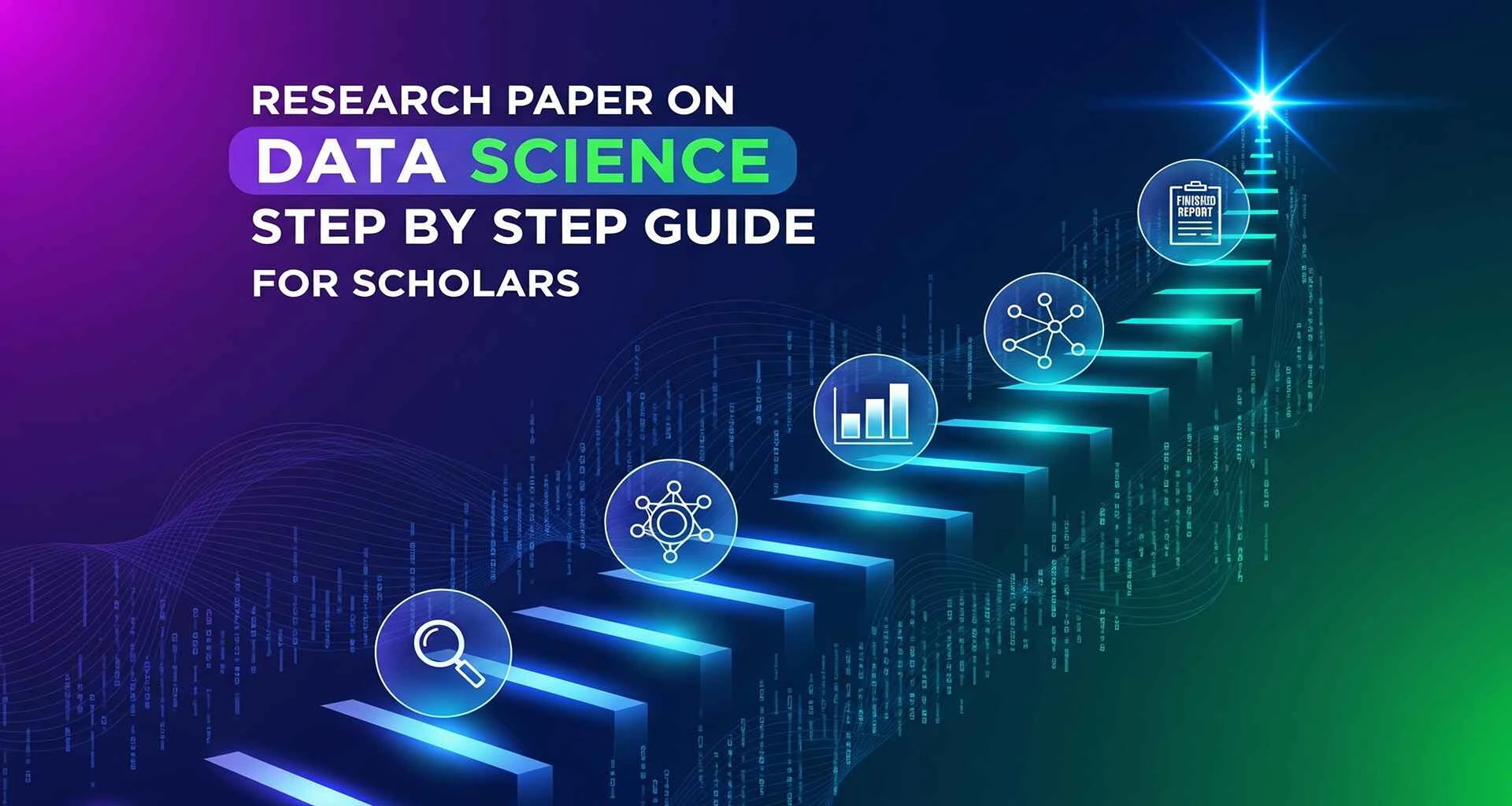
jefreena
A research paper in data science is a scholarly task; it actually acts as a bridge between theory and real-world application. In an academic context, data science combines statistics, coding and domain-specific knowledge to interpret and analyse intricate data.
However, selecting a research topic can be complex because its discipline covers a wide spectrum from artificial intelligence applications to big data ethics. For scholars, the key is to narrow down the broad interests into focused, publishable topics.
By connecting your data science research paper with real-world challenges like healthcare, climate change or cybersecurity, you create work that is both impactful and academically rigorous.
In research methodology, choosing the right topic is often the first significant step, and it can shape the entire direction of the study. A thoughtful research design doesn't just make your work academically sound; it also makes it practical and relevant.
When deciding on a topic, several points are worth noting. A scholar should be careful while considering the following:
Originality – A strong topic introduces fresh perspectives or solutions, filling gaps in existing literature while advancing academic dialogue and offering measurable contributions to the field.
Technical relevance – The chosen subject should address contemporary challenges in the research landscape, ensuring alignment with current trends, innovations, and the practical needs of academia or industry.
Feasibility – A practical topic ensures scholars can access reliable data, utilise available resources, and manage time effectively, enabling completion of a well-structured and reproducible research project.
Ethical compliance – Every study must uphold research integrity, transparency, and social responsibility, ensuring adherence to institutional standards while protecting participants, communities, and broader societal interests.
By applying these criteria, researchers can select topics that are academically rigorous, practically relevant, and aligned with university or journal requirements.
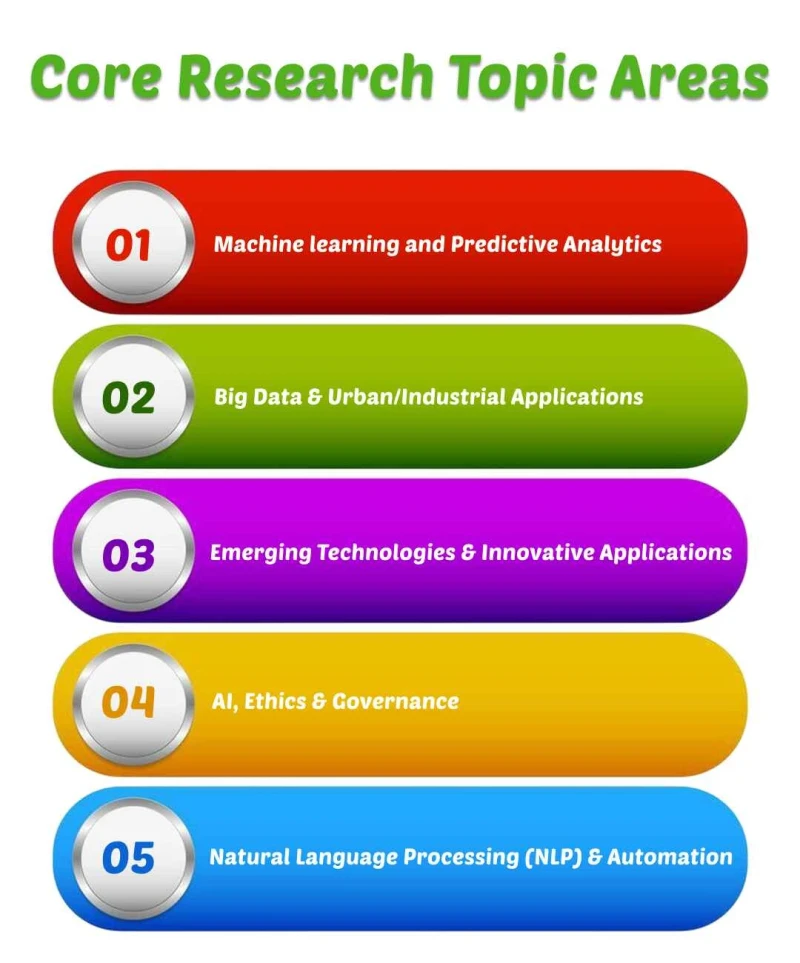
Organising data science research topics is essential because it brings clarity to a vast and complex field.
By grouping ideas under refined areas, scholars can easily navigate the landscape without feeling overwhelmed. This structure offers a logical flow and also makes research direction simpler, relevant and publishable.
This area centres on developing models that learn from data to make accurate predictions. Scholars explore techniques like regression, decision trees and neural networks, which have applications in finance, health care and marketing.
This research area benefits from technical depth and strong real-world impact. With both technical depth and measurable impact, this area offers opportunities for innovation and practical, real-world application.
Big dataresearch explores the way enormous sets of data can revolutionise urban development, traffic flow, industrial automation, and supply chain optimisation. Researchers study how advanced analytics facilitate smart cities, generate energy efficiency, and streamline production systems. The applicability of the field keeps it extremely relevant to contemporary economies.
With high relevance to growing economies, this area demonstrates how data-driven solutions can streamline production, reduce costs and transform large-scale decision-making across industries and infrastructure.
From blockchain and safe data to quantum computing for predictive analytics, emerging technologies are transforming data science. Data science research tends to cover more than one discipline and spills over into science, engineering, and policy. It offers researchers room to move towards new answers with the potential to transform society.
Scholars gain opportunities to design innovative, cross-disciplinary solutions with high potential to transform industries and society while addressing pressing challenges around security, speed and data reliability.
AI is being integrated into everyday life; fairness, accountability, and transparency are the most pertinent concerns. Researchers in this field investigate governance structures, moral standards, and responsible AI policy. Studies here make sure that data science benefits society and protects human rights and trust.
By studying these dimensions, scholars help data science benefit society, safeguard human rights and promote socially responsible technological adoption.
NLP seeks to enable machines to process and understand human language. Applications range from chatbots and translation tools to sentiment analysis and research assistants. Researchers in the field can explore both technical models as well as ethical issues, especially about bias and inclusion in language technologies.
This area provides strong academic and industry relevance, amidst shaping innovations that improve communication, accessibility, and the effectiveness of automated technologies.
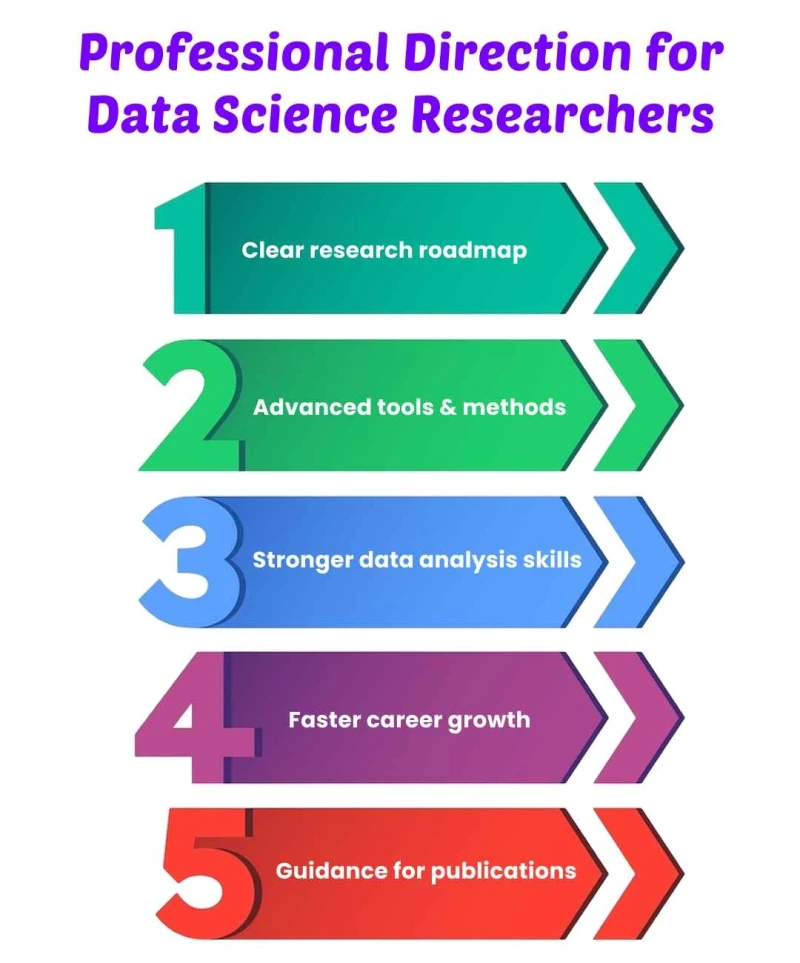
It takes accuracy and scholarly compliance to come up with a great research paper in data science. With expert academic support, researchers are able to improve topic selection, solidify research structure, provide reproducibility, and uphold journal or university requirements.
Professional research assistance also ensures original texts, orderly research processes, and results at a high level of proofreading. For aspirant PhDs, the service lessens chances of rejection and boosts credibility, enabling them to concentrate on new aspects of research.
Studies on topics like machine learning, big data, emerging technology, AI ethics, and NLP facilitate scholars to develop impactful, publishable studies. A good research paper in the field of data science must fulfil academic as well as professional objectives in the long run. Professional consultation plays an important role in guaranteeing that the quality and acceptance levels are optimised.
By investing in the quality academic work of experts, researchers can be able to provide originality, rigour in methodology, and transparency, improving possibilities of delivering research that improves the data science field.
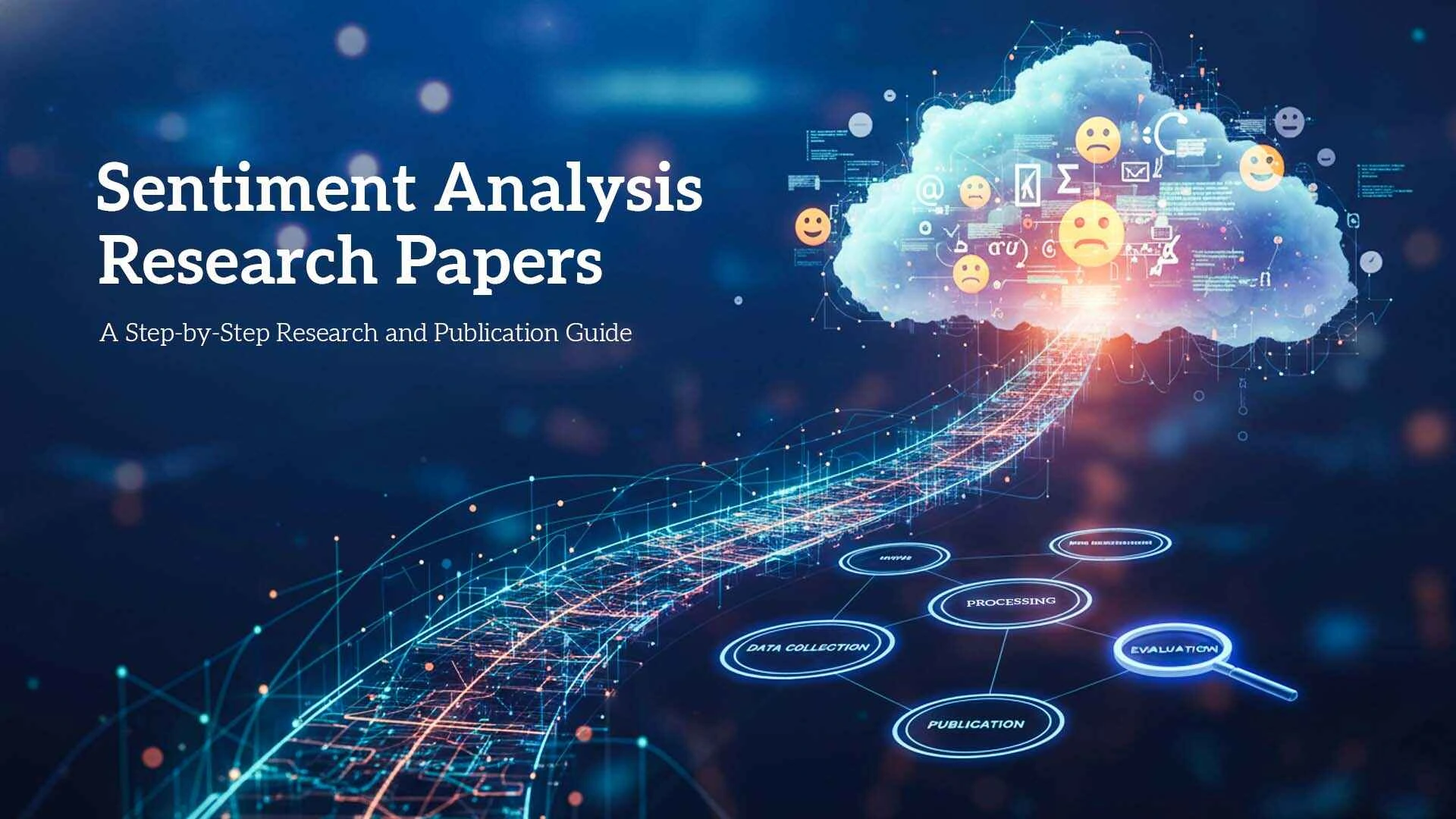
Sentiment Analysis Research Papers: A Step-by-Step Research and Publication Guide
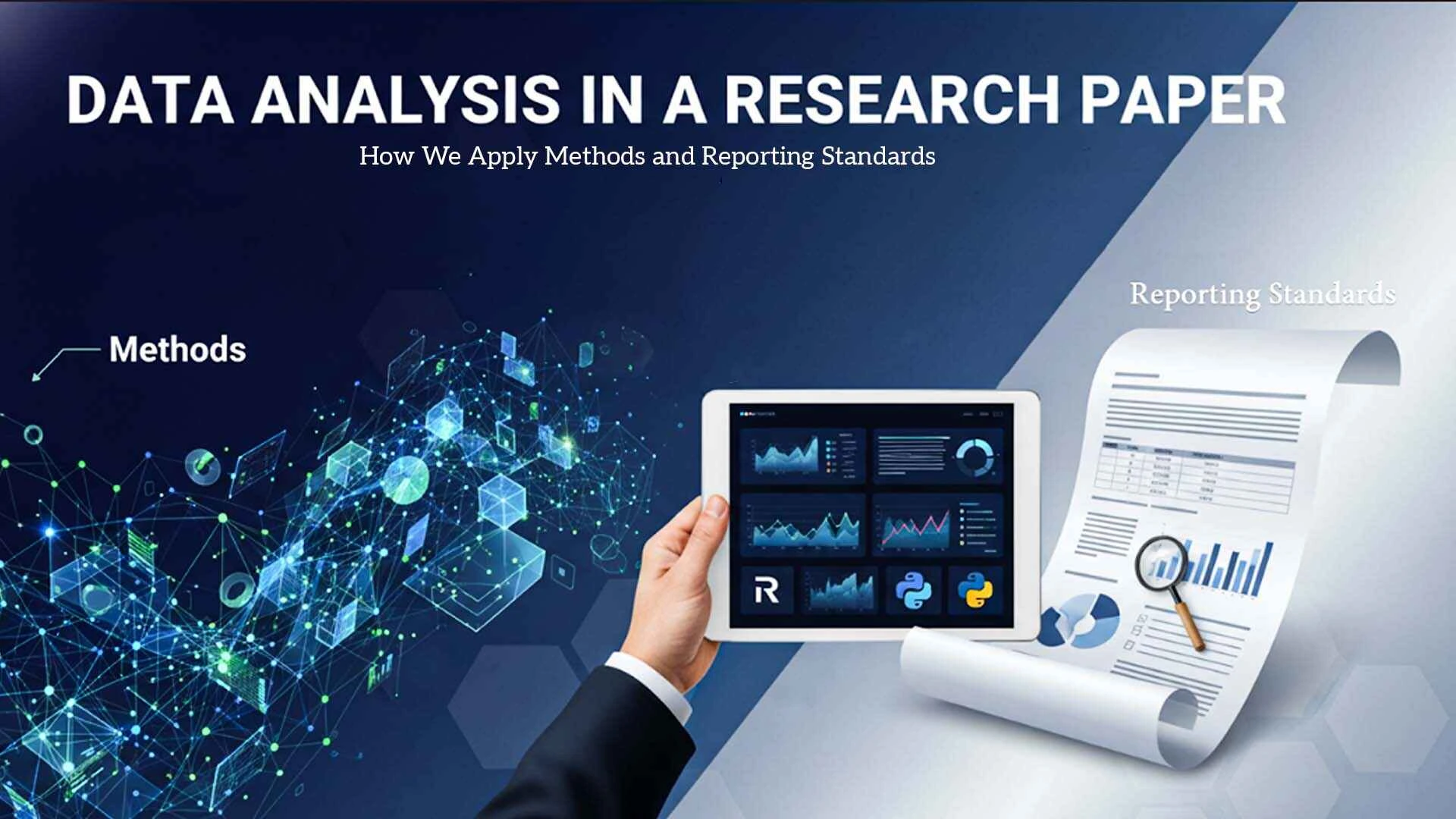
Data Analysis in a Research Paper: How We Apply Methods and Reporting Standards